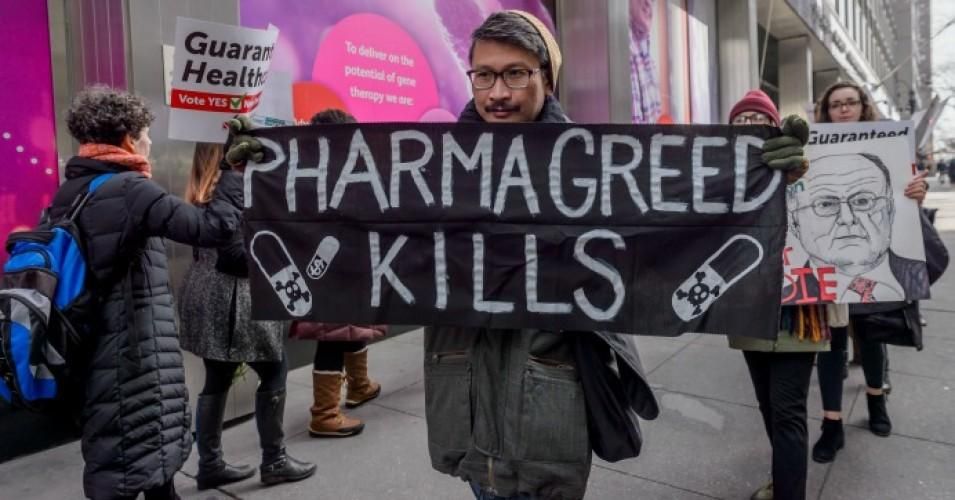Further poking holes in reports that the lawmakers currently standing in the way of passing President Joe Biden’s agenda are
“moderates,” new polling out Tuesday showed that large majorities of voters want the federal government to be empowered to negotiate for lower drug prices—a proposal long championed by Democrats which has now become a sticking point in the Build Back Better Act.
“Even with PhRMA spending millions on scare tactics and lies—voters know the truth.”
According to the Kaiser Family Foundation (KFF) survey taken between September 23 and October 4, 83% of respondents said the government should be able to secure lower drug prices for patients who use both Medicare plans and private health insurance plans.
“
We didn’t poll on baseball, motherhood, and apple pie, but I’m not sure they would score much higher,” tweeted Larry Levitt, executive vice president for health policy at KFF.The survey results illustrated the personal nature of the issue for millions of Americans, with eight in 10 respondents saying they felt the cost of prescription medications has become “unreasonable” and one in five senior citizens saying they struggle to afford their prescriptions—including 17% who have prescription drug coverage as part of their insurance plans.
Democrats have
long run on promises of lowering prescription drug costs, but with the provision within striking distance as part of the Build Back Better Act—the “human infrastructure” spending plan that would invest $3.5 trillion over a decade in the well-being of lower- and middle-income Americans—a small group of conservative party members have threatened to tank the package if the provision is included.
As
Common Dreams reported last month, Reps. Kathleen Rice (D-N.Y.), Scott Peters (D-Calif.), and Kurt Schrader (D-Ore.) voted against including federal drug price negotiating power in the package. The latter two lawmakers have accepted tens of thousands of dollars from the pharmaceutical industry this election cycle.
Rice claimed last month that she would not support the provision because it was not “fiscally responsible” and would “jeopardize the bill’s final passage,” while Schrader and Peters
repeated an industry claim that allowing negotiations for lower drug prices would harm innovation in the pharmaceutical sector and prevent new drugs from being developed.
Respondents to the KFF survey rejected that claim; even after being presented with the argument, 82% of voters still supported allowing the government to negotiate prices. More than 70% of Republicans still supported the measure as well as 82% of independents.
“
Even with [lobbying group] PhRMA
spending millions on scare tactics and lies, voters know the truth,” tweeted AARP, the national group that represents 38 million members over the age of 50.Noting the wide swath of the electorate that backs the proposal, Sen. Bernie Sanders (I-Vt.)—who has played a key role in negotiating the Build Back Better Act as chairman of the Senate Budget Committee—called on lawmakers to “finally have the courage to stand up to the greed of Big Pharma.”
In a call with reporters Tuesday, Sanders said that adding dental, hearing, and vision benefits to Medicare through the Build Back Better Act—
also popular with the public—is similarly “not negotiable.”
“
The Democrats must stand with the people,” added Sanders, “not fold.”
Source:
Articles Viral Post

0 Comments